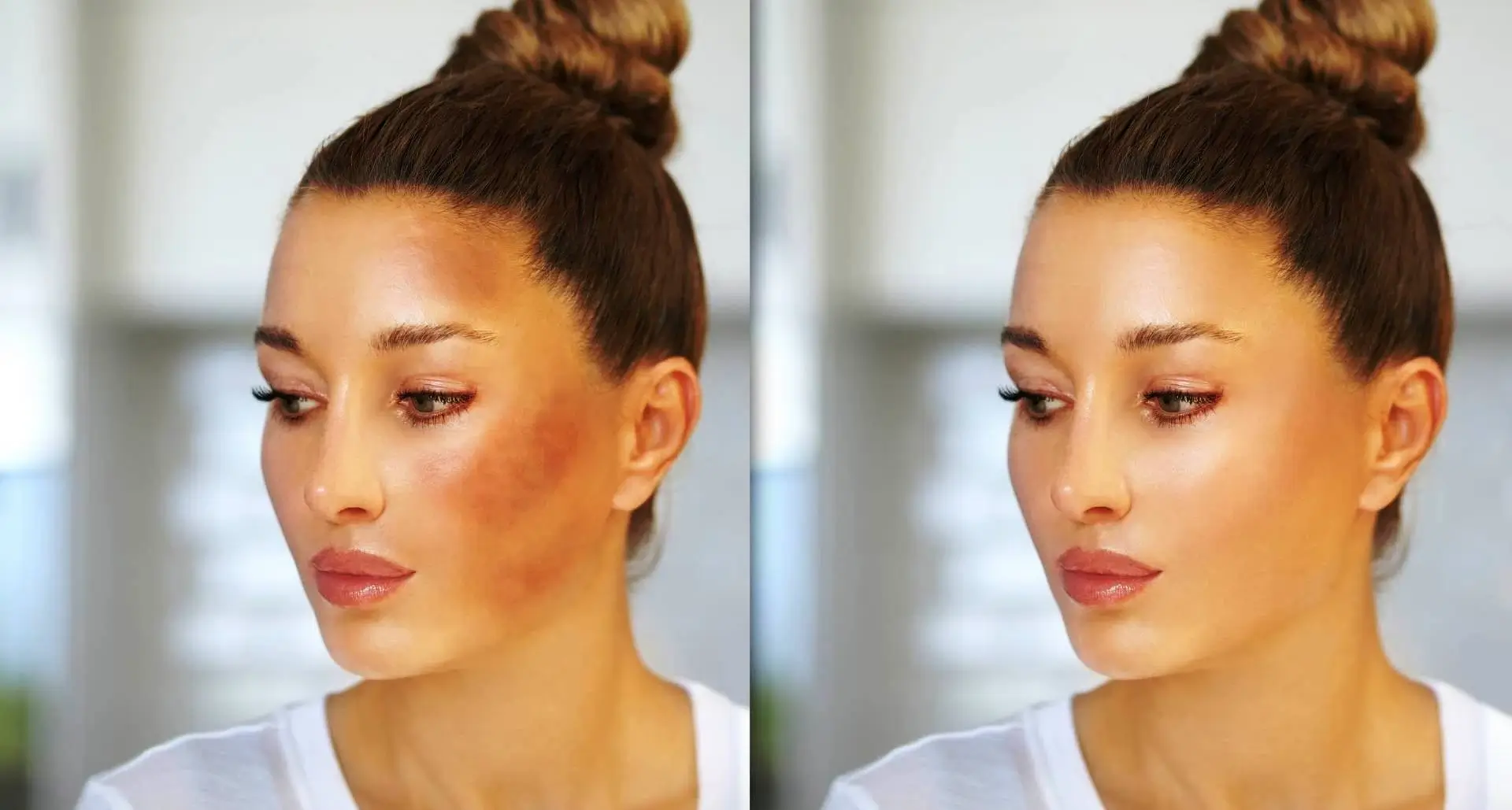In this post we are discussing Tips for Hyperpigmentation, Hyperpigmentation is a common skin concern that results in dark patches on the skin. It is often caused by excessive melanin production. Factors such as acne scars, sun exposure, hormonal changes, and inflammation can contribute to this condition. While hyperpigmentation is generally harmless, it can impact self-esteem and confidence.
The good news is that hyperpigmentation can be managed effectively with consistent care and the right home remedies. This article outlines dermatologist-approved tips for reducing dark spots and achieving a brighter complexion.
Understanding Hyperpigmentation
Hyperpigmentation occurs due to an overproduction of melanin, the pigment responsible for skin colour. It can appear on various body parts and is often exacerbated by exposure to UV rays, hormonal changes, or skin injuries like acne.
| Cause | Description |
|---|---|
| Sun Exposure | UV rays trigger excess melanin production. |
| Acne Marks | Post-inflammatory hyperpigmentation from acne scars. |
| Hormonal Changes | Fluctuations in hormones can darken certain areas. |
| Inflammation | Skin injuries or irritation can lead to dark patches. |
Home Care Tips for Hyperpigmentation
1. Use Sunscreen Daily
Sunscreen is one of the most effective ways to prevent hyperpigmentation from worsening. UV radiation triggers melanin production, making dark spots more pronounced.
- Choose a Broad-Spectrum Sunscreen: Look for SPF 30 or higher.
- Apply Daily: Even on cloudy days or indoors.
- Reapply: Every 2-3 hours if exposed to sunlight.
Pro Tip: Use sunscreens with added antioxidants for extra skin protection.
2. Incorporate Vitamin C Serum
Vitamin C is a powerful antioxidant that reduces melanin production and brightens the skin.
| Benefits of Vitamin C | How to Use |
|---|---|
| Fades dark spots | Apply in the morning. |
| Promotes collagen synthesis | Use a few drops on clean skin. |
| Protects against free radicals | Follow with sunscreen. |
Adding Vitamin C serum to your daily routine can significantly improve skin tone and reduce pigmentation.
3. Exfoliate Regularly
Exfoliation helps remove dead skin cells and promotes cell turnover, revealing brighter skin.
- Types of Exfoliants:
- AHAs (Glycolic Acid): Targets surface-level pigmentation.
- BHAs (Salicylic Acid): Penetrates deep into pores to prevent clogged follicles.
- Frequency: Exfoliate 1-2 times a week to avoid irritation.
Note: Use gentle exfoliants to prevent skin damage.
4. Niacinamide for Skin Repair
Niacinamide, or Vitamin B3, is a versatile ingredient that can reduce hyperpigmentation and improve skin texture.
- How It Works: Blocks melanin transfer to the skin’s surface.
- Additional Benefits: Reduces inflammation and strengthens the skin barrier.
- Usage: Apply daily before moisturizing.
5. Stay Hydrated
Proper hydration plays a crucial role in skin repair and overall health.
- Drink Water: Aim for at least 8 glasses a day.
- Use Hydrating Products: Opt for moisturizers with hyaluronic acid or glycerin to lock in moisture.
Tip: Hydrated skin heals faster, which can reduce the appearance of dark spots over time.
6. Consider Targeted Treatments
For persistent hyperpigmentation, targeted treatments like hydroquinone and retinoids can be effective.
| Treatment | Effect | Usage |
|---|---|---|
| Hydroquinone | Lightens dark spots by reducing melanin. | Use under dermatologist guidance. |
| Retinoids | Speeds up cell turnover and reduces pigmentation. | Apply at night; avoid sun exposure. |
Caution: These treatments can irritate if not used correctly. Always consult a dermatologist before incorporating them into your routine.
Hyperpigmentation Care Routine
| Morning Routine | Evening Routine |
|---|---|
| Cleanser | Cleanser |
| Vitamin C Serum | Exfoliant (1-2 times a week) |
| Moisturizer | Niacinamide |
| Sunscreen | Moisturizer |
Key Takeaways for Hyperpigmentation
Managing hyperpigmentation requires patience and consistency. Here’s a quick recap of essential tips:
- Protect your skin with sunscreen daily.
- Use skin-brightening ingredients like Vitamin C and niacinamide.
- Exfoliate regularly with gentle products.
- Stay hydrated and maintain a balanced skincare routine.
- Consult a dermatologist for advanced treatments if needed.
Hyperpigmentation Frequently Asked Questions (FAQs)
Q1: How long does it take to see results in treating hyperpigmentation?
A: Visible improvement typically takes 4-8 weeks with consistent care.
Q2: Can hyperpigmentation go away completely?
A: While it may not disappear entirely, proper care can significantly reduce its appearance.
Q3: Can I use home remedies for hyperpigmentation?
A: While natural remedies like aloe vera or turmeric may help, dermatologist-recommended treatments are more effective.
Hyperpigmentation can be a frustrating skin concern, but with the right care and consistency, you can manage it effectively. Follow these dermatologist-approved tips and embrace a brighter, even-toned complexion.
Start your journey to healthier skin today!




